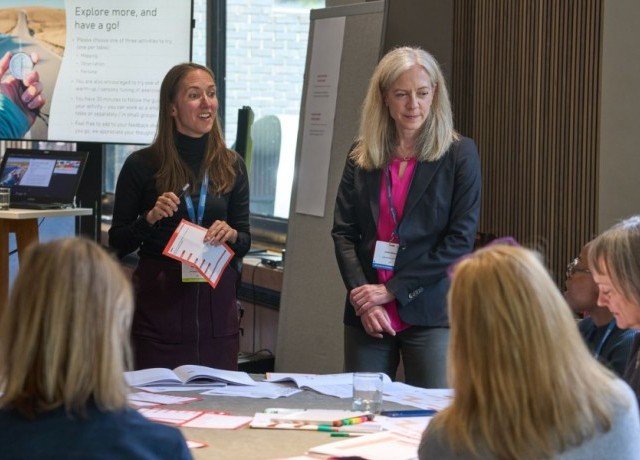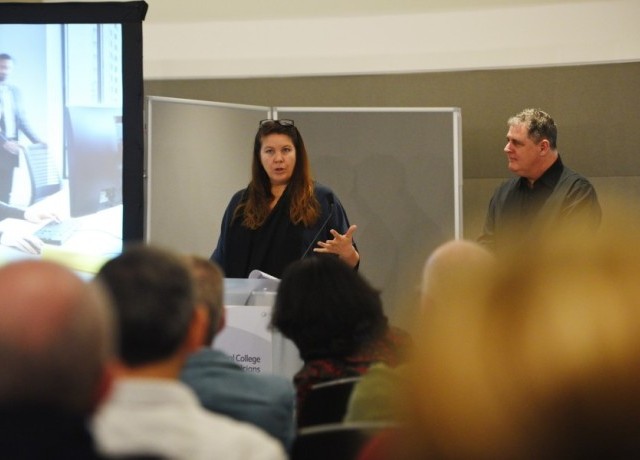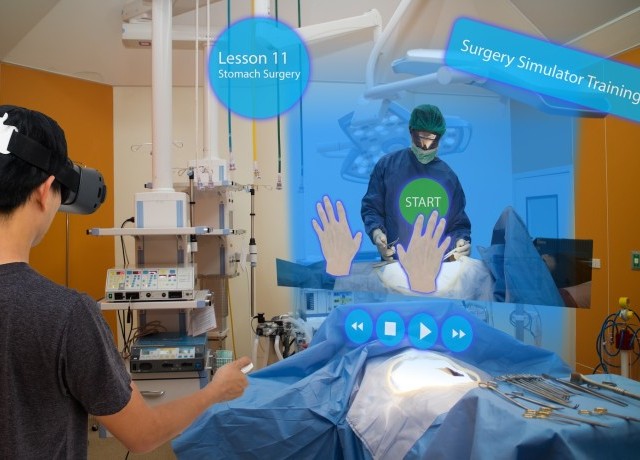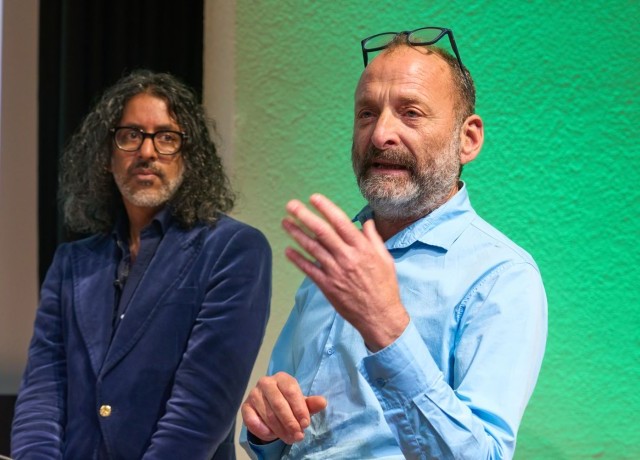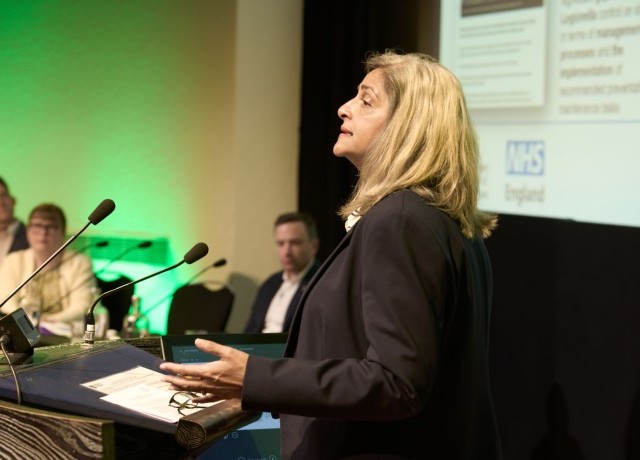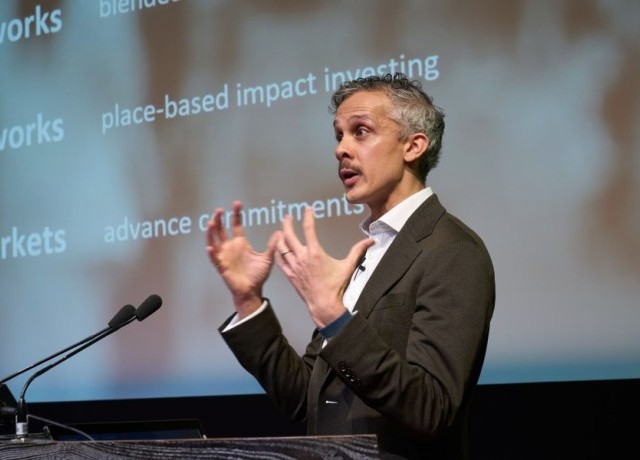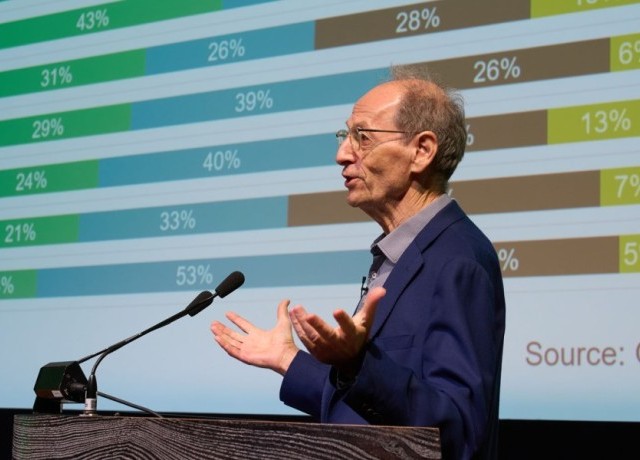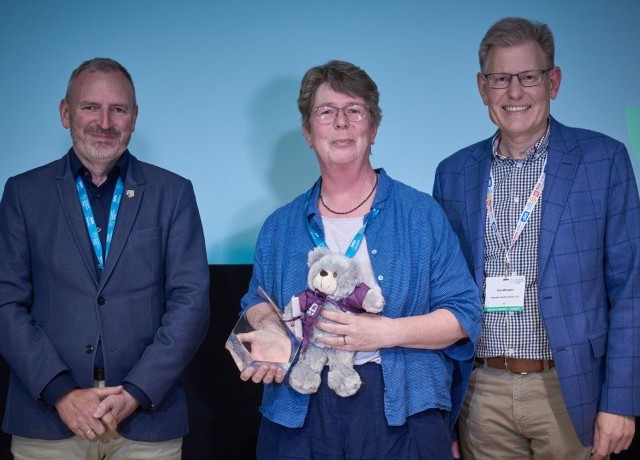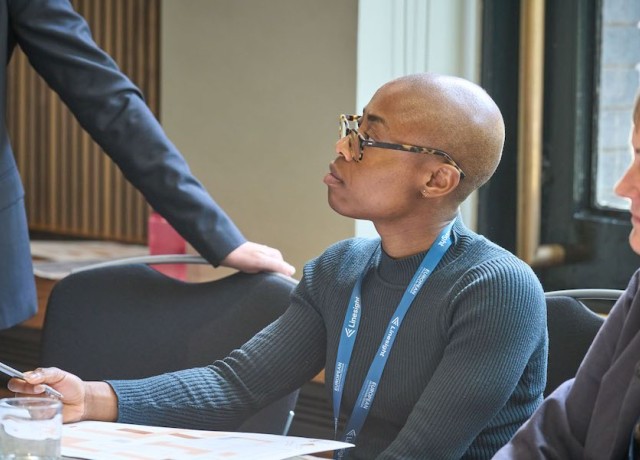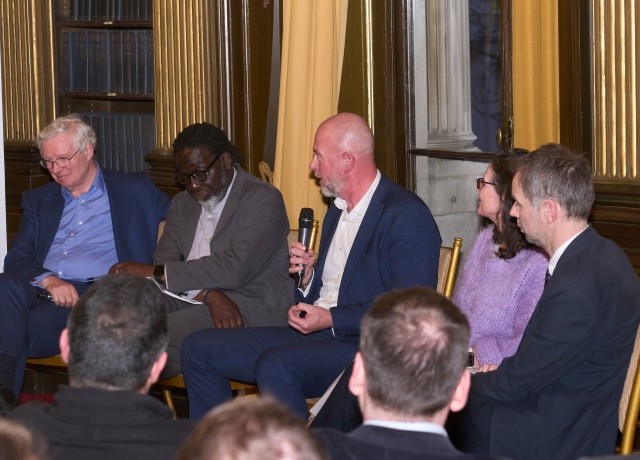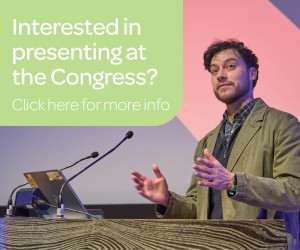
Keynote summary: Designing for physical, psychological and psychosocial rehabilitation in a European war zone
In the last few years, the world has become a more dangerous place, with major conflicts in both the Middle East and Ukraine. But while the human body is fragile, we possess an indefatigable spirit when faced with adversity.
This spirit was on full display during the opening keynote session of European Healthcare Design 2024, in which Mariana Svirchuk, chief executive director of the First Medical Union of Lviv and head of project management at Unbroken, described how the country had designed a medical rehabilitation service virtually from scratch.
The human cost of the war in Ukraine was brought sharply home, as Mariana shared some harrowing images and stories of children injured by the fighting, and whom the health system in Lviv, close to the Polish border, struggled to support initially, owing to a lack of a facilities, equipment and medical knowledge.
Among the injured were 11-year-old Yana Stepanenko and her mother Natalya. They were on the platform of Kramatorsk railway station when a Russian rocket landed. Yana lost both her legs, while Natalya lost one.
Seven-year-old Roman Oleksiv was injured in July 2022 during an airstrike on Vinnytsia. Having received 45 per cent burns on his body, he was taken to see a doctor, but his mother later died. And six-year-old Karolina lost both legs during the shelling of Nikopol. A rocket flew into her house, destroying her room. She lost consciousness and when she awoke, her legs were gone. She needed prostheses, while her mother also required hospital treatment for leg injuries.
Mariana explained how the first medical organisation to come to their assistance was Doctors Without Borders, which shared its knowledge gained from other conflicts, such as in Syria, to help Ukraine organise emergency triage. The aim was to become a stabilising hospital for initial surgery and other medical issues, with Ukrainian refugees sent to countries all over the world from April 2022.
Rehab at home
But attention also needed to turn to how they could create a system in the West of the country to help Ukrainians remaining at home. Said Mariana: “In May 2022, the surgeon-general of the UK armed forces took us to Sandford Hall, Birmingham and showed us how they took care of soldiers during the Afghanistan and Iraq war.”
She continued: “When we came back, we had the idea to open the National Rehabilitation Center of Ukraine, Unbroken. It encompasses a range of services and departments, including surgery; psychological rehabilitation; orthopaedics; psychosocial rehabilitation; physical rehabilitation; burns injuries; 3D bone implants printing; and a prostheses manufactory. And we asked doctors from all over the world to help us with the most complex cases.”
The numbers speak to the devastating cost of war but also the resilience and endeavour of healthcare workers, support staff, and citizens themselves to recover and look to build a new future. Since Unbroken opened, the centre has provided help for more than 1 million people, including 16,000+ war-affected patients; 114,000+ surgical interventions; 300+ prostheses; and 12,000+ provided consultations at the mental health centre.
From a system design perspective, the main success for Mariana is that everything is in one place. “Ninety per cent of people have reaction to trauma, sleep problems, panic attacks, and other issues,” she said. “That’s why we need medicine, help and support. Having all the facilities in one place helps the patients recover quickly and a lot of new technologies were implemented in this time.
“A big focus is also on the multidisciplinary team. Patients may need six or seven specialists who work together with patients.” The centre and its facilities have allowed Roman Oleksiv, who was initially sent to Germany and underwent more than ten operations for his burn injuries, to return to continue his rehabilitation in Ukraine. His treatment included the polishing of scars that formed on areas of his skin affected by burns.
Social support
But it’s not only the physical rehabilitation that is important; the centre recognises that patients not only need medical treatment but also social support and care.
“A lot of patients lose their motivation to continue their programmes,” said Mariana. “We recognised that support and peer-to-peer mentors can help and some of those who have completed rehabilitation chose to work with the hospital to support patients through their programme.”
Education is another key area – both in relation to healthcare staff but also the population. A key task surrounds the professional development of doctors
and nurses, with attention focusing on the organisation of educational programmes, the exchange of experience, internships, and the arrival of colleagues from abroad.
There is also the need to help re-integrate patients back into society and share their journeys and knowledge with the whole community. This support extends to social housing, says Mariana, “because a lot of people come from all over the country, so their relatives need a place for them to be. We have a European grant, and last year, we opened a large prosthetic workshop, as well as a smaller one this year.”
The war, of course, has taken – and continues to exert – a huge toll on the citizens of Ukraine, in myriad ways: physical, psychological and psychosocial. But faced with adversity, humans often have an incredible ability to turn adversity into a positive opportunity – and this is evident in a multitude of ways, such as the introduction of new medical technologies or the destigmatisation of mental health.
The Unbroken Charitable Foundation is a charitable body whose main goal is to raise funds for philanthropic and social projects to support the activities of the Unbroken National Rehabilitation Center. Its activities are based on accountability, transparency, responsibility, and the involvement of citizens from all over the world to achieve the main goal – access of every Ukrainian to modern medicine and a guarantee of receiving qualified care in their country.
In just over two years, and despite dealing with enormous hardship and suffering, the progress towards this goal has been remarkable.
Event news
Actions to improve urban renewal and health equity
2nd September 2024
A vision for Liverpool: Putting people’s health first
2nd September 2024
Investing in urban renewal and health equity
21st March 2024
Health equity: Marmot Cities
20th March 2024

